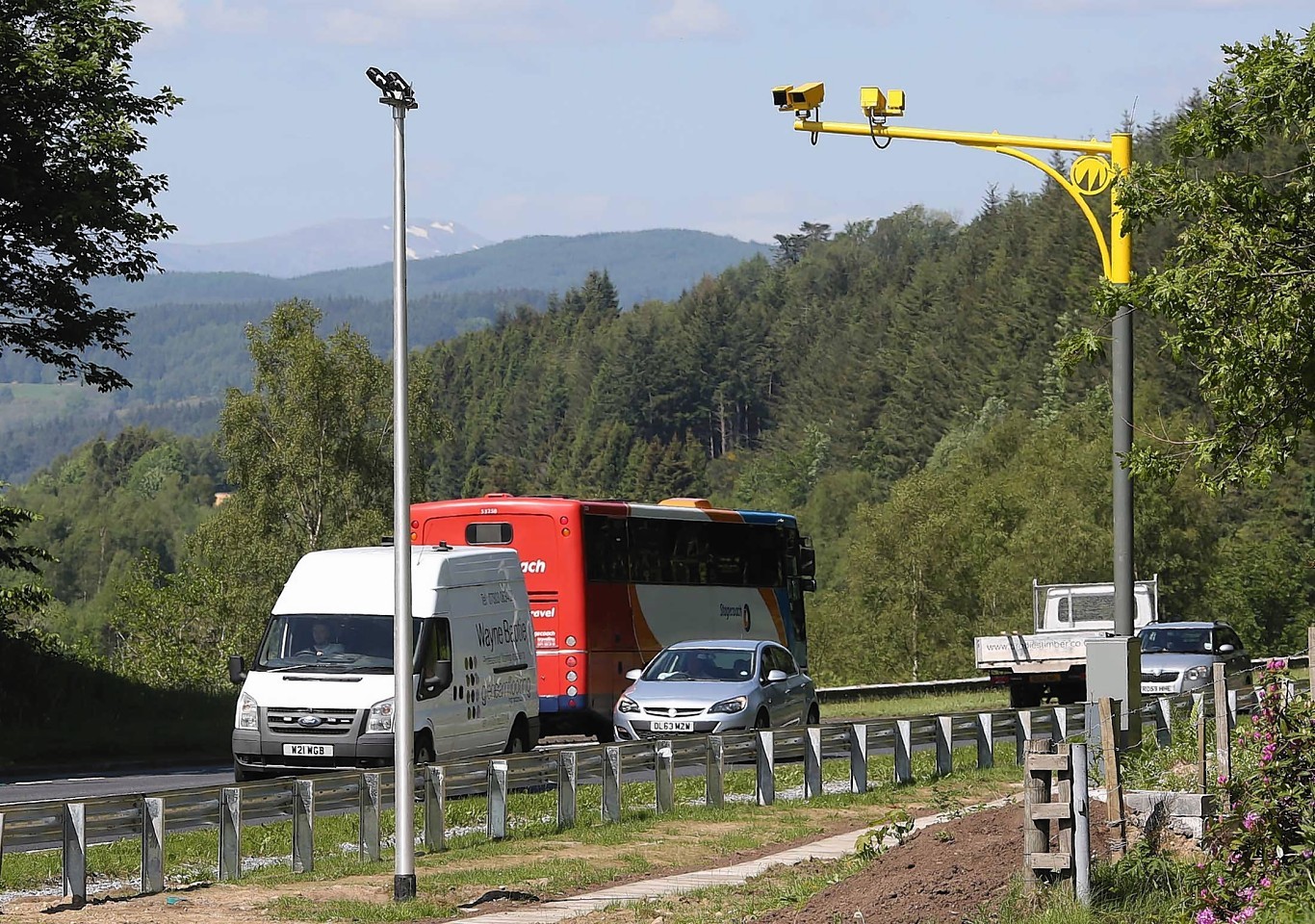An investigation will be launched into claims that the average speed cameras now activated on the A9 could cost the Highland economy millions of pounds each year.
Alex Paterson, chief executive of Highlands and Islands Enterprise, said he would look into research that concluded the new safety scheme could strip between £4.3million and £8.7million from local income due to increased journey times.
Mr Paterson was quizzed about the potential economic impact at a meeting of the Scottish Parliament’s economy, energy and tourism committee in Perth.
Mid-Scotland Fife MSP Murdo Fraser, who chaired the talks in the city’s Salutation Hotel, raised the issue following a study carried out on behalf of Transport Scotland.
Mr Fraser told Mr Paterson: “There are reductions in journey times and that is having a knock-on effect.”
He quoted the consultant’s study which estimated commutes could become about 5-10 minutes longer.
Mr Fraser said: “It doesn’t sound substantial.
“But the estimate was that this would impose an annual cost of between £4.3million and £8.7million on the Highland economy.”
Mr Paterson said: “We haven’t done any research on that, but we are happy to look into it.
“My sense is that we need to see what the effect will be, rather than try and predict it.
“The average speed camera system is fundamentally a safety issue.
“I understand Transport Scotland did indicate that journey times would not be affected by the cameras.
“The thing that will make the real difference on this road is dualling and the more we can move that forward, the better.”
The controversial cameras, which have been installed between Dunblane and Inverness, were switched on last week despite a long-running public campaign against them.
Both the Federation of Small Businesses Scotland and the Scottish Council for Development and Industry have voiced opposition to the cameras, citing detrimental economic consequences as a result of longer journey times.
Mike Burns, who is leading the campaign against the cameras, believes they could lead to the loss of more than 2,500 jobs.
Transport Scotland has claimed the cameras had already started to influence driver behaviour before they were switched on last week.
